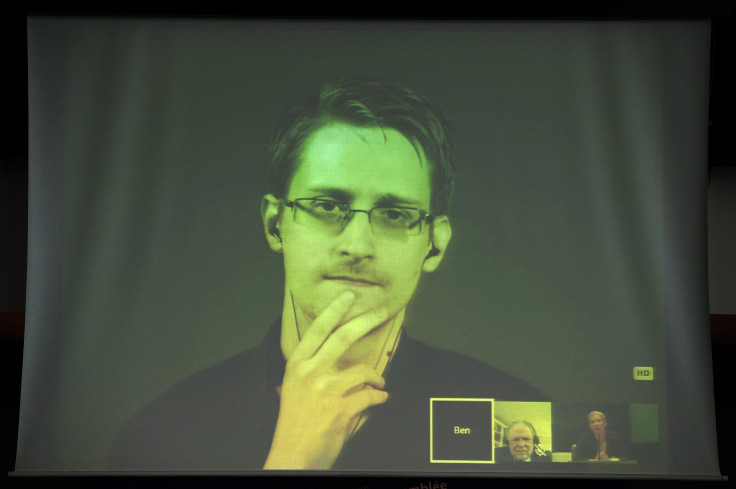Edward Snowden: US Cares More About Spying On Citizens Than Stopping North Korea, Russian Hackers

Never one to mince words on the United States’ surveillance programs or its national cybersecurity since taking the international stage three years ago, former NSA contractor and whistleblower Edward Snowden said Wednesday the U.S. and other governments place too much emphasis on offense rather than defense when it comes to cybersecurity.
Snowden, who is still taking asylum in Russia after leaking millions of classified NSA documents in 2013, spoke during a live-stream discussion with German outlet Süddeutsche Zeitung , according to CommonDreams.org, and explored topics like journalism and the very nature of cybersecurity conducted by governments.
"Journalists are increasingly a threatened class when we think about the right to privacy," Snowden said. "Yes, I can give you tips on how to protect your communications, but you are going to be engaging in an arms race that you simply cannot win. You must fight this on the front pages and you must win, if you want to be able to report in the same way that you've been able to do in the previous centuries."
Snowden also said that journalists are severely outgunned when it comes to taking on or exposing governments and their internal cyber-surveillance programs.
“Things are pretty bad for our side. For the government's side, it's never been easier,” he said. “How do we reconcile this with this idea that these are theoretically, as far as our understanding of mathematics goes, unbreakable communications? It's because what we're doing is we're thwarting mass surveillance when we use encryption. We're not stopping targeted surveillance. Because even, again, if you have the most well-encrypted device in the world, if the government spends a million dollars to pay a hacker to exploit your phone personally, they will very likely succeed."
He went on: “In our current state of the art, offense is easier than defense. This is an unfortunate artifact of the fact that governments around the world have prioritized offensive capabilities for the benefit of spying on people so much more strongly than they have defensive capabilities, preventing our countries from being hacked. ”
Snowden mentioned the recent hacks of the Democratic National Committee, which exposed the party’s inner workings throughout the presidential election, as an example of how exposed he believes the U.S. is to cyberattacks.
“We can hack Russia ten times; it will cause less damage to them than one hack to us will cause. We can hack North Korea 1,000 times, and they will suffer less damage than if they hacked us a single time. This is not a game that we want to get into, so why are we doing so? It's because policy is short-sighted,” he said.
Recently, Snowden and his supporters took part in an international campaign to try and convince President Barack Obama to pardon him in the final months of his tenure and allow Snowden to return to the U.S. However, Snowden is still facing charges under the Espionage Act and significant jail time.
Last month, a Norwegian court denied Snowden's request to enter the country to accept an award and be free of arrest and extradition back to the U.S.
© Copyright IBTimes 2025. All rights reserved.





















